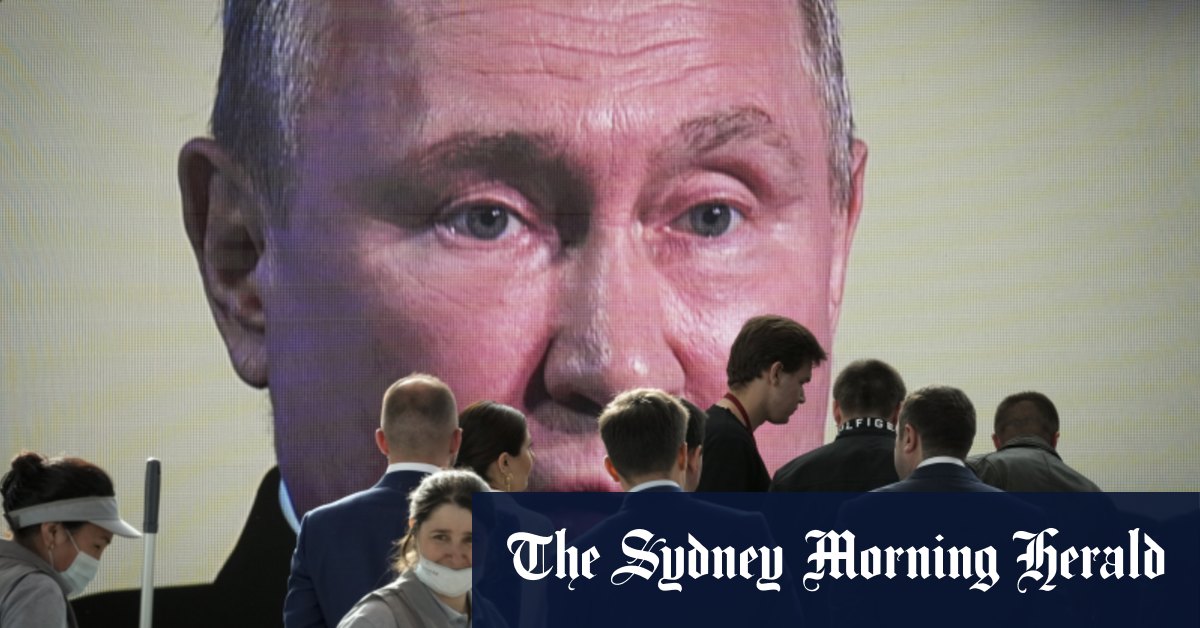“Each case is unique and depends on where people plan to live in the future and where their core assets are located,” Nevskaya said.
Russian wealth is unlike any other among the biggest economies. The succession wave that has just begun is the first since before the Bolsheviks seized power more than a century ago, ushering in Vladimir Lenin and virtually eradicating private ownership. Modern wealth emerged only after the fall of the Soviet Union, when local businessmen took advantage of the state selling assets in the 1990s to build the country’s giants of today. They soon began to find ways to send their fortunes abroad, trusting the rule of law in foreign countries would enable them to better defend their rights in case of litigation.

the rich getting accustomed to the idea that Russian citizens are no longer welcome in the West, the tried-and-true playbook for transferring fortunes has been effectively vanquished.Credit: Bloomberg
Russia, which doesn’t have inheritance taxes for its residents, has long tried to encourage the rich to bring their money back home. The latest push began in 2018, when the nation created special administrative areas where repatriated money could qualify for tax benefits. Then in 2020, the government renegotiated double taxation treaties with some countries including Cyprus, effectively raising the cost of keeping assets there.
Authorities later introduced private foundations that make it easy to transfer fortunes to the next generation by automatically distributing their assets or profits to the heirs. Since the legislation went into effect in early 2022, about 30 such funds have been set up, with the latest one just this month.
Roman Margulis, managing partner at ASB Consulting Group, which helps individuals establish such foundations in Russia, said the Moscow-based firm gets between 10 and 15 enquiries each month and that the numbers have multiplied over the past two years. The fear of sanctions and of getting assets frozen abroad is adding to the appeal, he added.
Yet only a couple of the people interested ended up establishing foundations, Margulis said. Because they are so new, many enquirers prefer to wait and see how well they do and how safe they are before committing. Moreover, heirs who aren’t Russian tax residents still have to pay a 30 per cent inheritance levy, making the structures less appealing when people living abroad are involved.
Informal relations
It’s not all about laws and jurisdictions, though. Russia stands out because the country’s business environment depends on informal agreements and guarantees that have developed under Putin, who recently extended his quarter-century rule with a fifth term as Russia’s president. While he has said he wasn’t planning any de-privatisation or nationalisation, having a good relationship with the authorities is key to avoid asset seizures.
Last year, prosecutors filed almost five times more lawsuits to nationalise assets than in 2022, according to research by newspaper Novaya Gazeta Europe and Transparency International Russia. In February, a regional court ordered the transfer to the state of three plants from a group that accounts for about 80 per cent of Russian ferro-alloys output and had been controlled by the family of entrepreneur Yury Antipov and his business partner since the early 1990s.
Loading
“The main role of business owners is to protect assets from rivals and the state,” said Stanislav Shekshnia, senior affiliate professor of entrepreneurship and family enterprise at INSEAD near Paris.
“This function cannot be passed on by inheritance as Russian capitalism rests on informal relations. Unfortunately, here tycoons have failed to build organisations that are independent of their founders.”
Bloomberg
